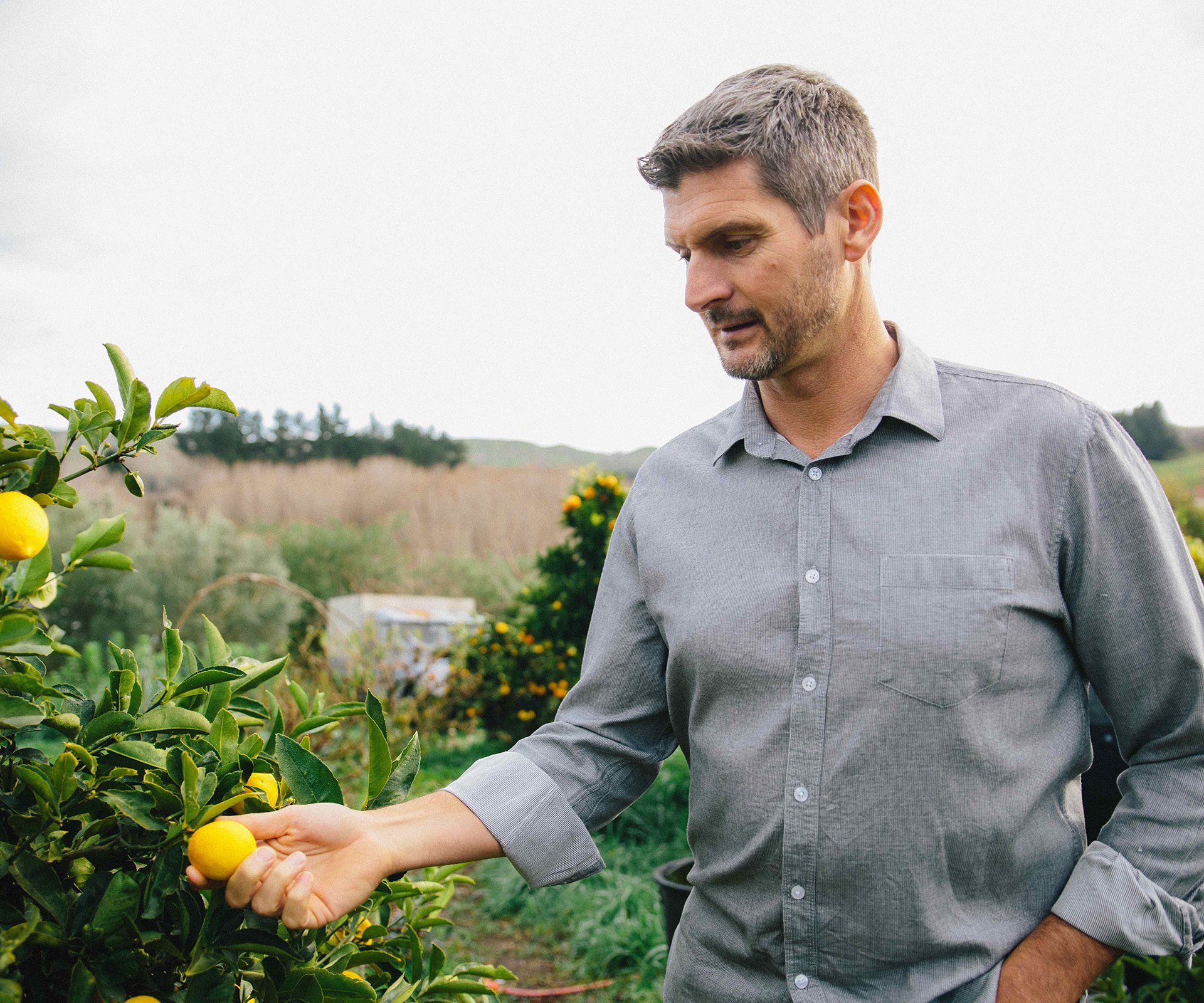It was a chance encounter that changed Ben Warren’s life. Before he was a nutritionist, he was on his way to becoming a professional golfer. But a niggly back injury was getting in the way and no one seemed to know how to help him. One day, he met a woman who looked him up and down and diagnosed him with a dairy intolerance. He cut out dairy and before he knew it his back was better and his asthma had disappeared.
Ben made the decision to walk away from his golfing career and gain a master’s degree in holistic nutrition, before opening up a clinic in Hawke’s Bay and founding BePure, a range of supplements. But that’s not all Ben has to offer – he sits down with Good Health Choices to talk us through the power of nutrition and our food choices.

Ben says a red flag is someone saying, “this is what you’ve got to eat.” That shows they don’t know enough about nutrition.
How can we differentiate between a food fad and a good idea?
If people have been doing something for a few centuries, then chances are it’s a good thing. Bone broths are becoming trendy, but they’ve been around forever. Whereas bulletproof coffee has only been around for 15 years. It’s a fad – a trendy way to drink coffee. It’s fine, but is it going to have a massive impact on your health? Probably not.
There are so many self-proclaimed ‘health experts’, how can we tell who knows what they’re talking about?
There are a lot of people who have found what works for them, but that doesn’t mean it will work for you. A red flag is someone saying, “this is the way you’ve got to eat.” That shows they don’t know enough about nutrition because everyone is different. Everyone’s autonomic nervous system responds differently to food. Everyone’s immune system responds differently. I mean, I have experience, I have degrees, but I still can’t tell people what they should be eating. I can only give them guidelines.
What’s a good example of this?
Last night at a seminar, I asked the crowd: “How many of you eat an apple and find you’re hungrier than you were before?” About a hundred people put their hand up. Then I asked: “How many of you eat an apple and you’re full for two hours?” Again, about a hundred people put their hand up. It’s the same food, but their bodies are reacting differently. The people who get hungry from eating an apple do much better on a high-fat, high-protein diet. They need that to stabilise their blood sugar levels, so it’s better for them to have eggs for breakfast than carbohydrates.
When you get a new client, what’s one of the first things you aim to teach them?
That everybody’s different. African tribes, for example, used to get 80 per cent of their calories from carbohydrates, the Inuit got 80 per cent of their calories from protein, while Native Americans got 80 per cent of their calories from red meat – and everyone was really healthy. My stance is that, in the western world, we’re eating too many processed carbohydrates and sugar for our genetics, and we’re starting to see the effect of that. We’re overloading the glycogen stores in our liver, which then spill over and we get fat. And we’re overloading our blood sugar, so we’re getting type 2 diabetes or heart disease.
Q: What changes have you made to your own diet?
I gave up dairy for two years, and healed the leaky gut syndrome I had, so now I can handle dairy. It still means I have to be careful. I can’t go ahead and eat as much dairy as I like; I know when I hit my threshold I’ll start getting a blocked-up nose. I’ve had genetic testing and all my genetic markers are around heart disease, so there are a lot of things I do in my diet to reduce inflammation. For example, I eat lots of omega-3 fatty acids but I limit omega-6 fatty acids. I also live on a 15-acre permaculture organic farm, where I grow about 80 per cent of the food I eat.
What are the symptoms of a food intolerance?
If someone gets bloated, if they get tired after eating, if they get headaches. Any kind of sinus issue, or any kind of rash. Also gas production – if they start getting fermentation from carbohydrates, or having problems with flatulence. These are all signs that the digestive system isn’t working as well as it could be. The major problems will be gluten and dairy, because they’re so hard to break down in the body.
There’s so much to remember; how do you not overwhelm people?
I start with simple steps. Invariably I begin by getting people’s diets clean. Then I give them options – we have a carbohydrate ladder, so if people are eating white bread, we get them to start eating brown bread. Then step from brown bread to a sourdough bread made with spelt flour. Then they can step up to wholegrains, like quinoa, buckwheat and oats. Then you step them up to salads – so a chicken salad for lunch, rather than a chicken sandwich. Once they’re eating a chicken salad for lunch, then we look at the quality of the food – is the chicken free range? Is the salad organic? Is it fresh?
We’re reaching crisis point with diabetes and obesity. Does the government need to step in or is it down to the individual?
For me, it’s about personal responsibility, because it’s what we do every day and the choices we make that really impact the course of our lives. I do think, however, that we need some legislation, particularly around sugar. Smoking legislation has been very effective. In my world, when someone smokes you kind of think, “Really? People still do that?” I’d love to think that in 10 years’ time, it’ll be like that with someone drinking a fizzy drink. It’ll be, “Really? You still do that?”, because we know how bad refined sugar is for our bodies.
Ben’s advice for women who want to improve their health and wellbeing:
Eat a clean diet. Remove gluten, remove sugar, then stabilise blood sugar levels with proteins and natural fats.
Look after your hormone levels. This starts with basic things like getting enough sleep. Iodine is also massively important. Iodine is essential for production of the thyroid hormone which controls our metabolism. If we’re not producing enough of this hormone we feel sluggish and tired, we don’t sleep well, our hair thins and we can have a tendency towards constipation.
Reduce stress. Stress eats our adrenal glands and your adrenal glands are under your thyroid, so if your adrenal glands aren’t working and producing enough cortisol, you can’t produce thyroid hormones T4 and T3. A lot of people have read about having an underactive thyroid and they get tested and it comes back normal, so they think, “Oh, it’s not my thyroid.” But in that instance it could be the adrenal glands not working well because of long-term stressors. That happens when people are burning the candle at both ends.
Regulate your oestrogen levels. Some women are oestrogen dominant, which stops them from burning body fat, so you have to clear oestrogen out of the body, through the liver. A lot of people can’t do this for a variety of reasons, but one of the best ways to regulate oestrogen and aid detoxification is by eating broccoli sprouts.
Words by: Emma Clifton
Photos: Supplied

.jpg)
